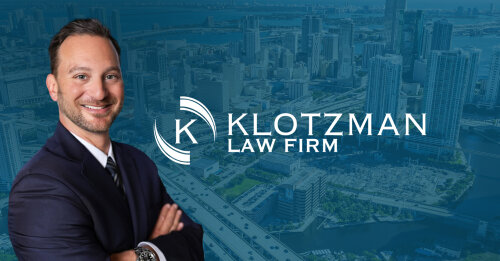Best Construction Accident Lawyers in New York City
Share your needs with us, get contacted by law firms.
Free. Takes 2 min.
List of the best lawyers in New York City, United States
1. About Construction Accident Law in New York City, United States
Construction accident law in New York City combines state statutes with city building codes to regulate safety on job sites and the remedies available to injured workers and involved non-workers. In practice, injured workers often pursue claims under New York State Labor Law which creates strict liability for gravity-related injuries. The focus is on whether the site owner or contractor failed to provide adequate protections such as guardrails, harnesses, or secure scaffolding. Understanding these rules helps you evaluate potential claims after an NYC construction accident.
New York City courts frequently apply these standards to determine who bears responsibility for injuries on construction sites. Attorneys in this space navigate workers’ compensation, personal injury, and third-party theories to maximize recovery. Because NYC projects involve multiple layers of contractors and property owners, a tailored legal strategy is crucial to address both immediate medical needs and long term financial recovery.
Tip: If you were injured on a NYC construction site, documenting the location, equipment involved, and who controlled the site can be essential for a timely, effective claim.
2. Why You May Need a Lawyer
- Guardrails and fall protection were missing on a tall Manhattan scaffold and you suffered a serious fall. In NYC, this can trigger a potential Labor Law 240 claim against the owner or general contractor for gravity-related injuries.
- A swung load from a crane struck you on a Queens job site because the area was not barricaded or the crane was not properly supervised. This scenario can involve Labor Law 240 or 241 depending on how safety codes were violated.
- Materials toppled from an unsecure stack in Brooklyn caused serious back injuries to a nearby worker or pedestrian. A third party may be liable, and a lawyer can identify all potential claim avenues.
- A supervisor ignored fall-protection protocols for workers on a high rising project in the Bronx, leading to multiple injuries. A dedicated construction accident solicitor can pursue remedies under the Scaffold Law and related statutes.
- A subcontractor failed to maintain safe equipment such as hoists or scaffolding on a Bronx site, injuring you or a coworker. An attorney can assess whether multiple parties share liability.
- You are a pedestrian or nearby resident harmed by debris or improper waste handling near an NYC construction zone. Liability can involve owner responsibility and compliance failures under NYC and state safety rules.
3. Local Laws Overview
The following laws and codes govern construction site safety and liability in New York City, with brief explanations of how they can lead to remedies for injured parties.
Labor Law § 240(1) - The Scaffold Law
This statute imposes strict liability on owners and general contractors for injuries arising from elevation-related hazards, such as fall hazards or inadequate safety devices. The rule is intentionally broad and is commonly invoked in NYC high-rise construction cases. It does not require proof of negligence to hold a party liable for certain gravity-related injuries; the focus is on the dangerous condition and protective measures in place.
Effective for decades, the Scaffold Law has shaped how NYC projects address height-related risks. If you are injured due to a fall or falling object and safety devices were absent or improperly installed, a claim under this law may be appropriate. Always consult a solicitor familiar with New York construction litigation to assess applicability to your facts.
Labor Law § 241(6) - Violations of Industrial Code or Regulations
This provision allows claims when injuries result from unsafe construction site conditions that violate specific Industrial Code provisions. It requires showing that a breach of a safety regulation caused or contributed to the injury. In practice, this often involves violations of the state industrial codes related to scaffolding, protective devices, or crane operations.
Because § 241(6) depends on demonstrating a code violation, a detailed review of the applicable Industrial Code provisions is essential. A construction accident solicitor can identify the exact code sections implicated and connect them to the accident circumstances.
New York City Administrative Code and Building Code - Construction Safety Requirements in NYC
New York City’s Administrative Code and Building Code set local safety rules for construction sites, including scaffolding standards, fall protection, site containment, and equipment operation. NYC projects must comply with these local codes, which often interact with Labor Law claims to determine liability. Local enforcement by the Department of Buildings (DOB) influences how cases are investigated and litigated in the city.
NYC-specific safety regulations can differ from state wide rules, so a NYC-focused attorney will review both state and city provisions to build a comprehensive case. The interplay between the Scaffold Law, Industrial Code violations, and local Building Code rules can shape the strategy and potential damages in your favor.
Fall hazards are among the leading causes of construction injuries in the United States, and many New York City projects address these hazards with scaffold and fall protection standards. Source: OSHA.OSHA - Construction safety overview
The Scaffold Law has long served as a cornerstone of New York construction liability, holding site owners and contractors accountable for gravity-related injuries.New York Senate - Labor Law 240
4. Frequently Asked Questions
These questions are designed to address common concerns in plain language. Each question begins with a question word and is within the requested length range.
What is a construction accident claim in New York City?
A construction accident claim is a legal action seeking compensation for injuries arising from hazards on a construction site in NYC. It can involve workers' compensation, Labor Law claims, and third-party lawsuits.
How do I start a construction accident claim in New York?
First, document injuries and site conditions, then consult a NYC construction accident solicitor. They will review your case and determine the best mix of workers' comp and personal injury claims.
When should I hire a construction accident attorney in NYC?
As soon as possible after the accident. Prompt legal help helps preserve evidence, protect deadlines, and coordinate medical treatment for your recovery.
Where can I file a construction accident claim in New York City?
You may file in the New York State court system or pursue workers' compensation claims through the NYS Workers' Compensation Board, depending on the claim type and liability sources.
Why is the Scaffold Law important for NYC construction injuries?
The Scaffold Law creates a path to recover for gravity-related injuries that might not require proof of fault. It is particularly relevant for falls from height on NYC sites.
Can I sue a general contractor if I was injured on site?
Yes, if the injury arises from safety violations or hazardous conditions that fall under Labor Law 240 or 241, or if a third party caused the injury through negligence.
Should I accept a quick settlement from an insurer?
No. Early settlements can limit your recovery for future medical bills or lost wages. A lawyer can assess settlement value and negotiate on your behalf.
Do I need to prove fault for a Scaffold Law claim?
No, for certain gravity-related injuries under Labor Law 240(1). You must show the hazard and its connection to the injury, not necessarily fault.
How much compensation can I recover in a NYC construction case?
Damages vary widely by case and include medical expenses, lost wages, and pain and suffering. A NYC solicitor can estimate likely outcomes based on facts and evidence.
How long do NYC construction accident cases take?
Cases can take 1-3 years to resolve through settlement or trial, depending on complexity and court backlogs. Some cases may take longer if trials are required.
Do I need to file a notice of claim for a private construction accident?
No for private sector injuries. Notice of claim requirements apply to certain municipal or public agency claims. A lawyer can clarify whether such steps apply to your situation.
Is there a difference between workers' compensation and a personal injury claim in NYC construction accidents?
Yes. Workers' comp covers wage replacement and medical care with limited rights to sue. Personal injury claims, including Labor Law claims, pursue damages from responsible parties outside workers' comp limitations.
5. Additional Resources
- OSHA - United States Department of Labor - Federal construction safety regulations and enforcement resources. https://www.osha.gov/
- New York State Department of Labor - State-wide workplace safety rules, training, and compliance guidance. https://www.labor.ny.gov/
- New York City Department of Buildings - NYC construction code enforcement, safety guidelines, and building permits. https://www1.nyc.gov/site/buildings/index.page
6. Next Steps
- Collect basic accident information within 24-72 hours: location, date, time, workers involved, and any witnesses. This helps preserve key evidence for your case.
- Seek immediate medical care and obtain written records of your injuries. Medical documentation supports both damages and causation claims.
- Preserve evidence at the site: take photos, keep all safety devices in place if possible, and avoid altering or disposing of equipment or materials.
- Consult a NYC construction accident solicitor for a free or low-cost evaluation within 1-2 weeks of the incident.
- Provide the attorney with all documents: medical records, incident reports, photos, and contact information for witnesses and site supervisors.
- Budget for a thorough case review: discuss possible claims under Labor Law 240, 241, and any third-party liabilities, and understand deadlines and expected timelines.
- Decide on a strategy with your attorney: whether to pursue settlement negotiations, and when to proceed to litigation if needed. Prepare for a multi-stage process typical in NYC cases.
Lawzana helps you find the best lawyers and law firms in New York City through a curated and pre-screened list of qualified legal professionals. Our platform offers rankings and detailed profiles of attorneys and law firms, allowing you to compare based on practice areas, including Construction Accident, experience, and client feedback.
Each profile includes a description of the firm's areas of practice, client reviews, team members and partners, year of establishment, spoken languages, office locations, contact information, social media presence, and any published articles or resources. Most firms on our platform speak English and are experienced in both local and international legal matters.
Get a quote from top-rated law firms in New York City, United States — quickly, securely, and without unnecessary hassle.
Disclaimer:
The information provided on this page is for general informational purposes only and does not constitute legal advice. While we strive to ensure the accuracy and relevance of the content, legal information may change over time, and interpretations of the law can vary. You should always consult with a qualified legal professional for advice specific to your situation.
We disclaim all liability for actions taken or not taken based on the content of this page. If you believe any information is incorrect or outdated, please contact us, and we will review and update it where appropriate.
















